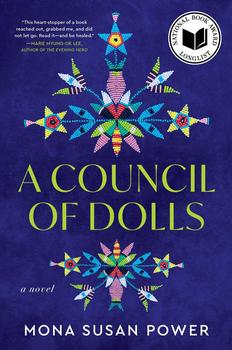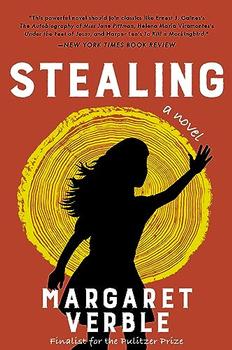Summary | Excerpt | Reading Guide | Reviews | Beyond the book | Read-Alikes | Genres & Themes | Author Bio

A Novel
by Mona Susan PowerAuthor Mona Susan Power's previous works of fiction include the novel The Grass Dancer, which won the 1995 PEN/Hemingway award. A Council of Dolls was popular with our First Impressions reviewers, earning an average rating of 4.7 out of 5 stars.
What the book is about:
Although a work of fiction, A Council of Dolls reads in part like an intensely written personal memoir describing the uprooting of Dakota children taken from their homes and sent to missionary schools for "reeducation" and how the damage done to those children and their tribes will affect their lives for generations to come. We are introduced to Lillian, Cora and Jesse; to their joys, sorrows and relationships; and to their dolls Winona, Mae and Ethel. The dolls play an important role in the young girls' lives. They are their comforters and the witnesses to their truth (Marcia C). This book covers historical events that span from the late 1800s to 2010 from the perspectives of three young girls from each generation and their cherished dolls (Mary G).
Readers appreciated Power's attention to language and detail.
Beautiful prose, profound sentences and a well-woven story. This is a must read (Karna B). Power's writing is pure poetry. At the heart of this novel is her belief that language itself is power (Janice P). I found several phrases that I really appreciated. One of the early ones is "I'm careful when I'm dusting, try not to walk into a song in my head." How many times have you been doing something and ended up "walking into a song"? Another is "Your spirit isn't big enough to walk in our words." ... There were many more phrases that made me stop and just reflect (Cheryl R).
They also enjoyed the distinct characters, perhaps especially the childhood dolls.
The childhood dolls of each of the women inform and enhance their stories in a most surprising and marvelous way. Although all of the other characters are important to adding dimension to this book, Ethel, Mae and Winona are essential to making this a unique novel that I will never forget! (Jeanne P). The difficult subject matter of collective and generational trauma is made personal with the magical voices of the dolls (Gina T). I could relate to finding comfort and companionship within the world of dolls as a young child with a vivid imagination (Laurie L).
Reviewers felt that the book was one with an important message…
The message of this book shines a light on the destructive results of early American ignorance and intolerance of Native culture. … A good read on an important historical topic, containing enduring lessons applicable to current events (Marianne L). Author Mona Susa Power manages the challenge of creating convincing young narrators while addressing a mature theme: the complexity of preserving tribal identity in a white world determined to criminalize it, the psychological damage that is done and how that resonates from one generation to the next (Janice P).
…and found it to be an exciting, enthralling read.
I liked this book so much that I couldn't decide whether to read it slowly and make it last longer, or to read it quickly and think about it more deeply after I read it! (Anne C). It's been a long time since I've read a book that I wanted to put in other people's hands. A Council of Dolls is that kind of book (Nanette C).
![]() This review was originally published in The BookBrowse Review in August 2023, and has been updated for the
November 2024 edition.
Click here to go to this issue.
This review was originally published in The BookBrowse Review in August 2023, and has been updated for the
November 2024 edition.
Click here to go to this issue.

If you liked A Council of Dolls, try these:

by Rachel Eliza Griffiths
Published 2024
Two Black sisters growing up in small-town New England fight to protect their home, their bodies, and their dreams as the Civil Rights Movement sweeps the nation in this "magical, magnificent novel" (Marlon James) from "a startlingly fresh voice" (Jacqueline Woodson).

by Margaret Verble
Published 2024
A gripping, gut-punch of a novel about a Cherokee child removed from her family and sent to a Christian boarding school in the 1950s—an ambitious, eye-opening reckoning of history and small-town prejudices from Pulitzer Prize finalist Margaret Verble.
Your guide toexceptional books
BookBrowse seeks out and recommends the best in contemporary fiction and nonfiction—books that not only engage and entertain but also deepen our understanding of ourselves and the world around us.